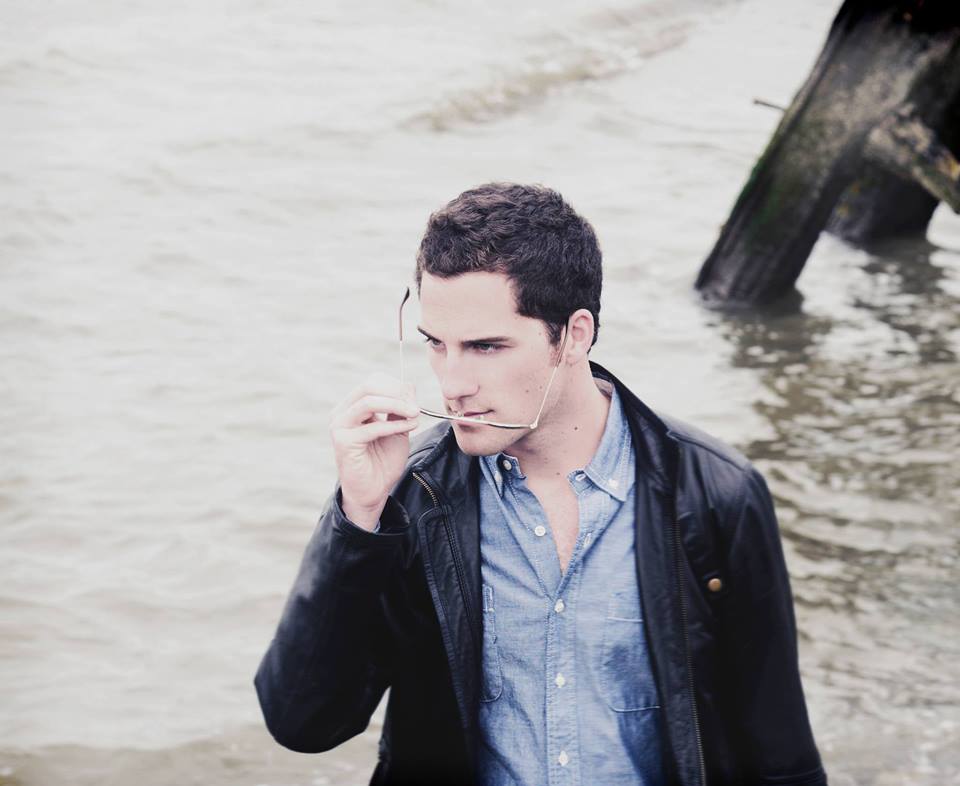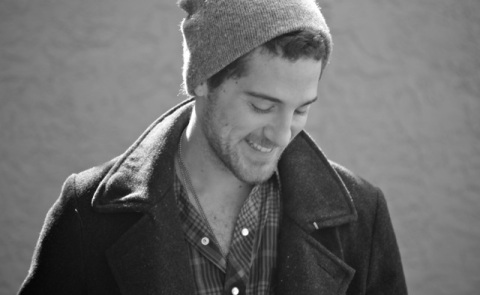Last week I had the privilege of sitting down with Jesse Ruben when he was in town for his “We Can” tour with Caitlin Crosby. Jesse is a Philly-bred singer/songwriter currently living in Brooklyn, NY. He has independently sold over 10,000 albums, had song placements on TV shows such as One Tree Hill, Degrassi, and Teen Mom, and toured with some amazing artists, including Jewel, KT Tunstall, Rick Springfield, and Hanson. His song “We Can” is in regular rotation on the XM/Sirius Coffeehouse channel, which called him “the next generation of singer/songwriter.” Ruben has sold out venues across the US with deeply personal performances that combine well-crafted pop songs with the stories they came from. Beyond musical endeavors, Ruben is involved with the Christopher and Dana Reeve Foundation, the largest non-profit focusing on spinal chord injury and paralysis. He is a co-chair of their Champions Committee and has represented them three times in the NYC Marathon.
Here’s my interview:
Q: Many writers have said they knew at the age of 10 that they were born to write. Did you have a defining moment like that and how old were you?
A: I was 16 when I knew exactly what I wanted to do. I was always pretty creative, but I didn’t start playing guitar until my junior year of high school. My dad was a big electric guitar player—Clapton, Hendrix, Cream. The idea was that I would get an acoustic guitar and learn the basics and then he would buy me a Strad and we would shred guitar solos on stage together. And so he bought me this knock around guitar and I sat down with it and the only way I could describe it is that it was the first time my life made any sense. And I started writing that day.
I love language and I always wanted to be a novelist. But I’m a fourth generation musician. If you take literature and music and combine them, what you have is songwriting. When I listen to a song, I want to feel like I’m a different person at the end than when I started. I want it to transform me. That’s what I always try to do when I write.
Q: Musicians and songwriters are an especially vulnerable lot. Basically, you open your heart and bleed. Researcher/storyteller Brené Brown talks a lot about countering vulnerability with gratitude. How do you practice gratitude?
A: I love being vulnerable. In every song, there’s a little bit of me there. The reward is in that the more generous you are with yourself, the more vulnerable, the more honest you are, the greater the impact. So I could write a bunch of meaningless pop songs and people would still like them. But I wouldn’t get emails from people thanking me for saving their lives. And that’s why I do this, so I can make an impact on people. Because songs saved me. I don’t know where I’d be without them. It seems the more you put in, the more you get back.
Q: Where are you most happy?
A: On stage with a group of committed listeners who are just so psyched that I’m there. There’s nothing like it in the world.
Q: How do you nurture your creativity?
A: I find that when I’m not writing—if I’m stuck—it’s because I haven’t been listening to music. What I listen to most these days is on vinyl—Paul Simon, Jackson Browne, the Beatles.
You have these pop songs now that are really popular, but nobody has any emotional connection to them. They’re really fun, you can dance to them. But, for instance, James Taylor, “Just yesterday morning they let me know you were gone / Suzanne the plans they made put an end to you.” That song is 50 years old and people listen to it all the time. And Joni Mitchell, “Just before our love got lost you said I am as constant as a Northern Star.” Nobody listens to that and says, I wonder what she’s talking about? “I could drink a case of you and still be on my feet.” Nobody’s going, What does she mean?
When I sit down to write a song like “We Can,” for instance, “It doesn’t matter if they don’t believe / It doesn’t matter if they do not understand / Cause every dream that I’m trying to achieve / I can, I can, I can” I’m not leaving any room for interpretation. The old songs tell us what happened, beautifully. And I miss that. That’s why I wake up in the morning. That’s what I love.
Q: What spurred your involvement with the Christopher and Dana Reeve Foundation?
A: My friend, Zack, who broke his neck years ago. It was a really intense experience and I wrote a song about it on my first record called Song for Zack. I sent it to the Reeve Foundation because he had been working with them. They loved it and I’ve been involved with them since.
It gives me something else to talk about besides something as small as “How many iTunes singles did I sell today?” If the work that I do with the Reeve Foundation speeds up the cure for paralysis by ten minutes, my entire life will be worth it. I think the work they do is incredible. One thing that motivates me to be more successful is being able to bring more people to the cause.
Q: Thought leader Seth Godin wrote a book called, Poke the Box, which basically says stop waiting for a roadmap and draw your own. How have you “poked the box” in your own life?
A: My whole job is asking for things: tours, shows, money, studio time, meetings. And most of the time when you’re starting out or when you’re on your way up, all you hear is, no. Or nothing. When I first started, it used to drive me crazy. I was losing sleep over no. Now no is a very comfortable part of my day. It’s just part of the job.
Q: What advice would you give to people who have a dream and are afraid to take the first step?
A: You can either be afraid and comfortable or uncomfortable and move forward. It becomes what’s more important. Getting what you want? Or not being afraid? What is being afraid? Being afraid is just a feeling. Being brave is not about having no fear. Being brave is being terrified and moving forward anyway. I’m terrified every day. I have no idea how this is going to turn out. I’d like to be financially comfortable. I’d like to travel all over the world. I’d like to think that people still care about songs. But I don’t know. What I do know is that if I had gone to a liberal arts school and gotten a degree in psychology and done that, I’d have been really good at it. And I’d have been really unhappy. It’s not why I’m here. I’m here to do this. It’s what I’m best at in the whole world. It’s the way I’m best able to impact people. Nobody writes the songs I write. I’m here to do that. And if I don’t do it, nobody will.
My advice to people who haven’t taken the first step yet is, What are you waiting for? Stop waiting for permission. People have a lot of opinions when you start out as a musician. Are you sure you can do it? Do you have a back-up plan? No, I’m not sure. I have no idea. But I know that I’d hate myself if I didn’t. I only get one shot to be here and I’m not going to waste it. Don’t listen to other people when they disagree with your dreams. It’s really easy to put down somebody else’s dream. It’s really hard to go after your own.
Earlier this year Jesse challenged school children in Canada to do something to make the world a better place. He wrote the song, “I Can,” which inspired those children and continues to inspire others to defy small and live large. Enjoy!
Check out Jesse’s website, like his Facebook page, and follow him on Twitter @jesseruben!



Jesse is FANTASTIC! What an inspiring interview 🙂
Thanks, Arianna! Isn’t he fabulous? You went before me . . . thank you for inspiring, as always!
I don’t know which was better: the questions or the answers! I think the great answers are only achieved by asking great questions first… great piece Laura!!